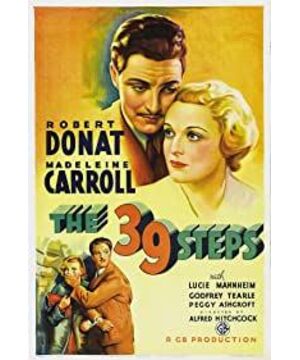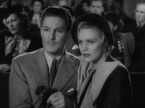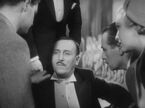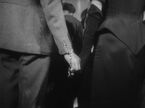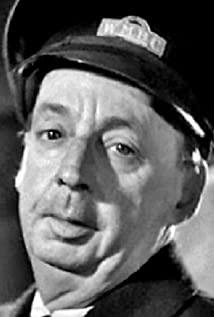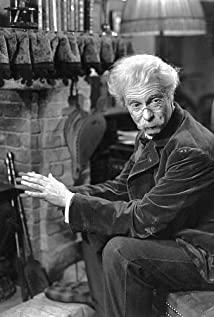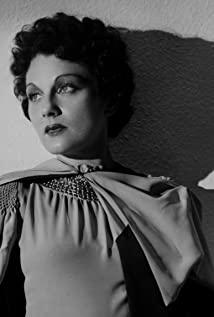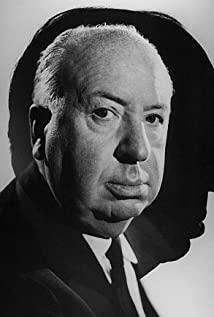It is not just Mr. Memory who defends professional ethics with death. At the beginning of the film, the female spy Isabella shot at the concert hall to get rid of the spy who found her trace, causing riots, and took the initiative to strike up a conversation with the handsome Hannah and take him home for the night. In the end, instead of passion and romance, Isabella took her own life. But before dying, she struggled to deliver important information and related things to Hannah.
Mr. Severe Finger's two subordinates are dedicated. First manifested in perseverance. They could stay outside Hanna’s apartment all night and wait for an opportunity to assassinate Isabella (however, after being severely wounded, Isabella managed to get rid of the murderer and return to Hanna’s room before dying, Hitchcock But did not explain). After that, he followed Hanna closely until he was "arrested" by the podium under the guise of the police. Second, it has a sensitivity that matches the identity of a spy. Before being taken away by the spy agents at the club, Hanna revealed the details of the spying activities to the heroine Carlo almost desperately and asked her to notify the police. This sudden change immediately caused the two spies to be alert and uneasy. After a brief exchange of glances, they decided to take Caro away on the grounds of police witness records. Of course, the more important role of this plot setting is in the narrative. Hitchcock intends to trigger the romantic and dangerous "handcuffed journey" of the heroes and heroines in the second half of the film.
Hanna went to Mr. Severe Finger’s apartment by mistake. When the latter threatened and mockingly raised his severed finger and right hand, and pulled out a pistol to force Hannah who was trying to escape, his wife just walked in. Obviously, she was completely watching her husband's every move. But to the audience's surprise, the lady's reflection seemed to be that nothing happened. She elegantly and flatly informed the two rival men in the room that lunch was ready, and then turned and left. I personally think that this approach to black humor, on the one hand, reflects Hitchcock’s insistence on the thriller comedy style of the film: even when the protagonist is facing a critical moment of life crisis, he must let the audience experience the humorous elements. exist. On the other hand, it involves the subject of this article: dedication. Hitchcock did not want to vilify foreign spies. Maybe he would think that these people's behaviors are noble from a certain angle, because after all, they are serving their own country. And Mr. Finger's wife not only fully understands the behavior of supporting her husband, but she herself is very likely to be one of the important members of the spy network. She would take it for granted that appropriate threats or even killings are just a necessary part of espionage work. Therefore, will be indifferent.
But in the film, Hitchcock used a completely opposite portrayal of the British police, the opposite of the foreign spy who should have been on the righteous side. In the section of the train interrogation, the policeman chasing Hannah went to the cargo carriage and opened the door to take a look. Several vicious dogs in the carriage were barking. The police had lost all courage and bucked each other. No one wanted to be the first to come forward. The scene was quite funny. And only from the picture below, you can see that these police officers are of different sizes and slow movements. Compared with the two capable spy agents, they clearly lack professionalism.
When Hannah survived a catastrophe and escaped from Mr. Severe Finger's residence, thinking that he had enough evidence to expose the spy conspiracy to the police, the local police chief who received him showed even worse professional ethics. Not only did this person ignore the evidence provided by Hannah—the bible with a bullet-embedded bullet head—but he also didn't even think about why a wanted murderer wanted to snare himself? The only thing he has to do is routinely call the higher-level department to come and mention someone.
Why is Hitchcock unwilling to "treat" the British police? Pure narrative needs, can't involve the police prematurely, lest the subsequent splendid horror plot cannot be fully displayed? Or is it because the director himself, out of a long-term hatred of the psychological shadow that lingers after being briefly detained in his childhood, intends to achieve some kind of hidden psychological revenge by "uglifying" the image of the police in the work? Haha, no matter what, at least one thing is certain, this way of expression adds a lot to the comedy atmosphere of the film.
Not only the main characters, but also the supporting characters and even the heroes, we can still clearly feel the dedication. After Isabella's death, Hannah, in panic, was thinking about how to get rid of the spy agent who was still hovering outside the building, and just a milkman walked in. Hannah came to his mind and successfully tricked him into changing clothes with him. But just after he brought the basket out of the building, the milkman picked up the empty bottle on the ground and hurried to the door and shouted, "You forgot to empty the bottle!" The
most interesting and the least noticeable dedication and job-loving pacesetter appeared on the train. . When the police chased Hannah through the passenger compartment, a waiter who came across with a plate of food happened to come over. Although the train was bumpy and the aisle was narrow, the man still swiftly passed the police officers who were running on the opposite side one by one, and did not spill any food on the plate due to constant body collisions.
In the small inn, Hanna saved his life with the help of the store's professional ethics. When he found out that his Mu Na husband was about to tell strangers about the guest's check-in, the alert female landlord hurriedly interrupted their conversation under the pretext of not being able to provide the guests with alcohol at night, and drove the agents out of the shop. Although its original intention is to protect the elopement of young couples, from another perspective, not casually revealing the information of the hotel guests is also one of the qualities necessary to engage in this industry.
(With picture: http://www.mtime.com/my/hitchitsch/blog/883825/ )
View more about The 39 Steps reviews


